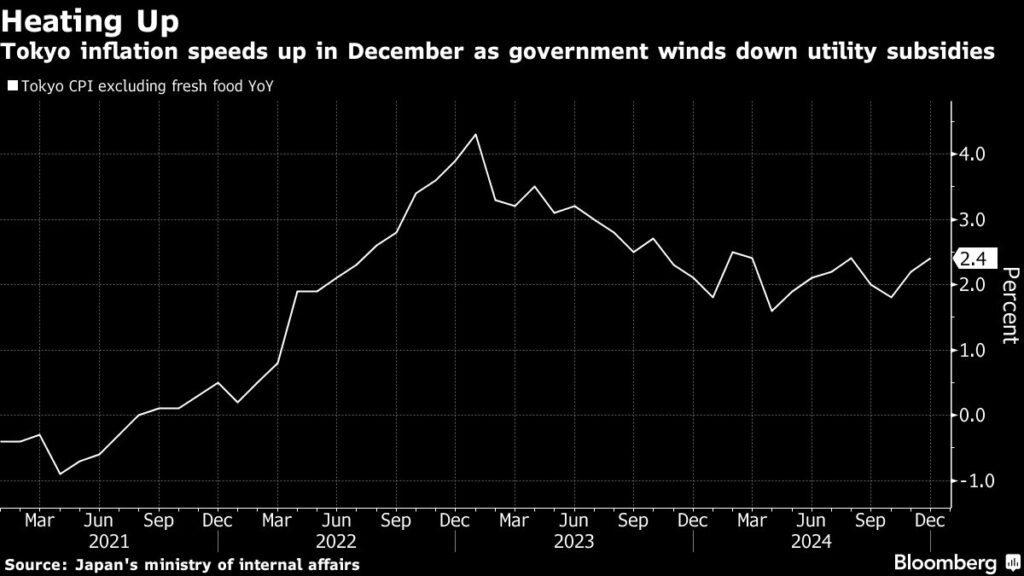(Bloomberg) — Inflation in Tokyo accelerated for a second month in December while the labor market remained tight, results that largely keep the Bank of Japan on track for an interest rate hike next year.
Most Read from Bloomberg
Consumer prices excluding fresh food rose 2.4% in the capital, quickening from growth of 2.2% the previous month, the Ministry of Internal Affairs reported Friday.
Tokyo’s figures serve as a leading indicator for national trends. Separate data showed the labor market staying tight in November with the jobless rate unchanged at 2.5%, while factory output declined less-than-expected on a monthly basis after robust gains in September and October. Retail sales came in stronger than forecast.
Overall, the data point to an economy making a patchy recovery with a reasonably solid inflation trend. While the figures suggest extreme stimulus from the central bank isn’t needed by the economy to continue its expansion, none of the data indicates a pressing urgency to raise interest rates next month, either.
“The BOJ will likely be choosing between January and March, depending on wage developments,” said Koya Miyamae, a senior economist at SMBC Nikko Securities.
The acceleration in the capital’s inflation was largely driven by 13.5% gains in energy prices, following the phasing out of government subsidies for gas and electricity bills. The reading was the strongest since August, though a shade softer than economists’ consensus for a 2.5% gain. The subsidies had shaved 0.31 percentage point from the overall price index a month earlier.
Under Prime Minister Shigeru Ishiba the subsidies will be revived from January through March, reintroducing a distortion in the inflation picture going forward. A deeper measure of the inflation trend that excludes the energy distortions showed prices rising at a slower pace of 1.8%, compared with 1.9% a month earlier, indicating that Japan doesn’t have a rampant problem with hot prices that needs immediate action.
The yen was around the 157.55 mark against the dollar following the data and the release of opinions from the central bank’s recent meeting. That’s close to a five-month low. Further yen weakness could fuel inflationary pressure via higher import costs.
The weak currency is another factor the central bank is likely considering as it times its next move. Should the exchange rate approach 160, speculation of possible intervention by Japan’s government and a January rate hike is likely to escalate.
Keen to ensure Japan can establish a virtuous economic cycle sustained by stable price and wage growth, along with solid private consumption, Ishiba rolled out a ¥21.9 trillion ($139 billion) economic package last month.


